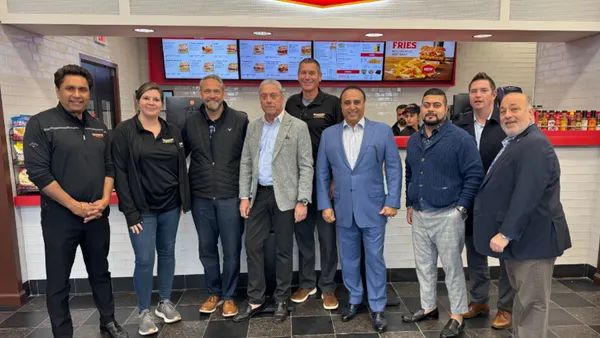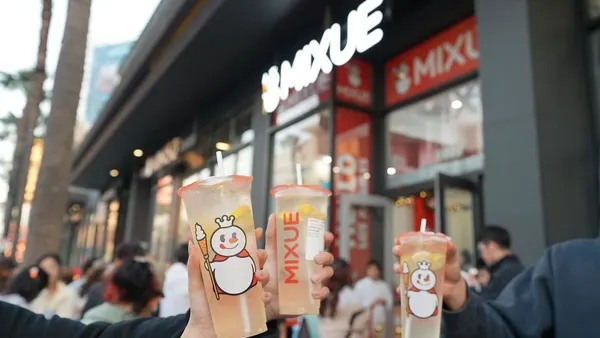Dive Brief:
- Subway continues to downsize its domestic footprint, closing more than 1,000 restaurants in the U.S. last year, about twice as much as originally planned, according to CNN.
- These closures come on the heels of 836 closures in 2017 and 359 closures in 2016. According to Restaurant Business, Subway is now at its smallest footprint since 2011.
- Amid these closures are allegations, reported by the New York Post, brought forth by Subway franchisees accusing the company of going after them for minor infractions, such as smudged glass, in an attempt to put them out of business and restructure the organization.
Dive Insight:
Subway's sharp reduction in unit count, as well as its low average unit volumes of around $400,000 illustrate a case of brand oversaturation and subsequent cannibalization. Now the chain is being accused of trying to overcorrect itself by allegedly targeting franchisees for arbitrary infractions.
As one Ohio-based operator told the New York Post this week, the company's inspections led to complaints about coats in the backroom, while another was found out of compliance for slicing his vegetables in a choppy manner. Stores found in violation have been sold to the company’s development agents who are in charge of the inspections, the plaintiffs allege. They accuse the development agents of attempting to acquire those stores themselves to facilitate a system restructure. As the New York Post reports, Subway initiated 702 arbitration actions against U.S. franchisees in 2017, compared to one by McDonald’s, two by Dunkin', and none by Pizza Hut, Burger King or Wendy's.
But Subway insists these inspection failures are simply to ensure high standards. The chain has also undergone big changes as of late to rein in years of declining sales amid not only self-induced bloat but also an intensifying sandwich category. Among them are a major brand refresh, upgraded menu items and a heavier focus on digital initiatives.
Subway is not the only national chain that's been accused of using inspections to try to get a franchisee to sell their restaurants. One of Burger King's largest franchisees sued the fast food giant for what he deemed was "bullying" to try get him to sell some of his Texas locations, according to Restaurant Business. Both sides agreed to dismiss the case in April and the restaurants remain open.
Whether or not the allegations against Subway prove to be true is perhaps less important than the fact that there is clearly a schism between the franchisor and some franchisees — a major warning sign for the health of a brand. Such fractures have affected companies from Jack in the Box to McDonald's to Papa John's in the past year. McDonald's franchisees even went so far as to form a National Owners Association, a move that has enabled the group to bend corporate's ear and earn more leverage, such as lower delivery fee negotiations.
This isn't the first sign of trouble within Subway’s system. In 2017, some franchisees expressed concern over the cost of the company's remodels. Earlier this year, two high-level executives left the company, adding to the chain's challenges. Though Subway has made some steps in turning things around after a tumultuous few years they may as well be steps backwards if its franchise operators aren’t on the same page.








